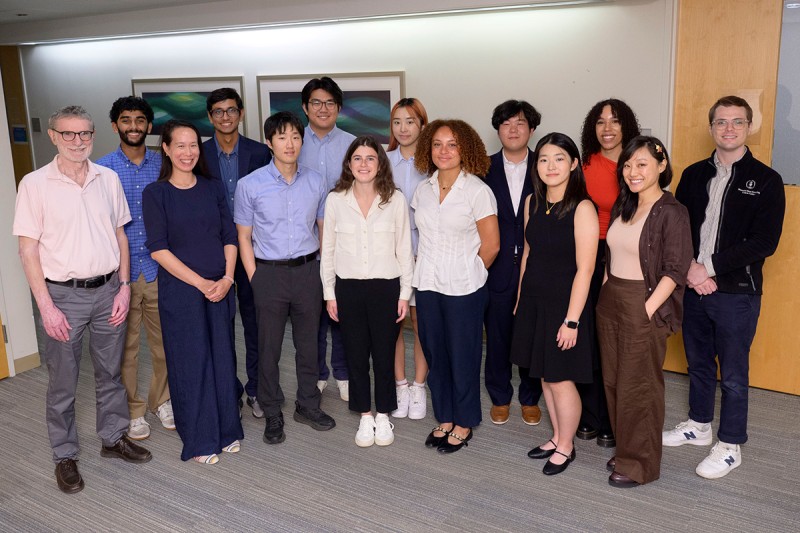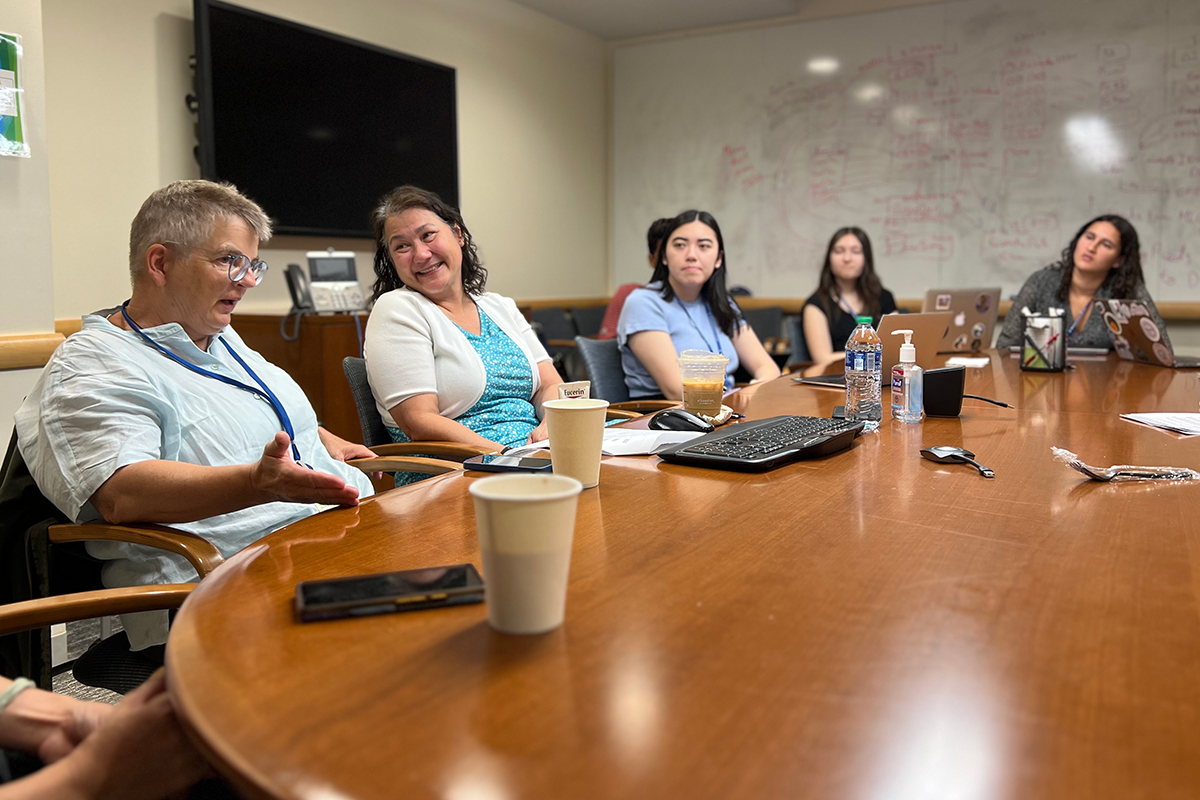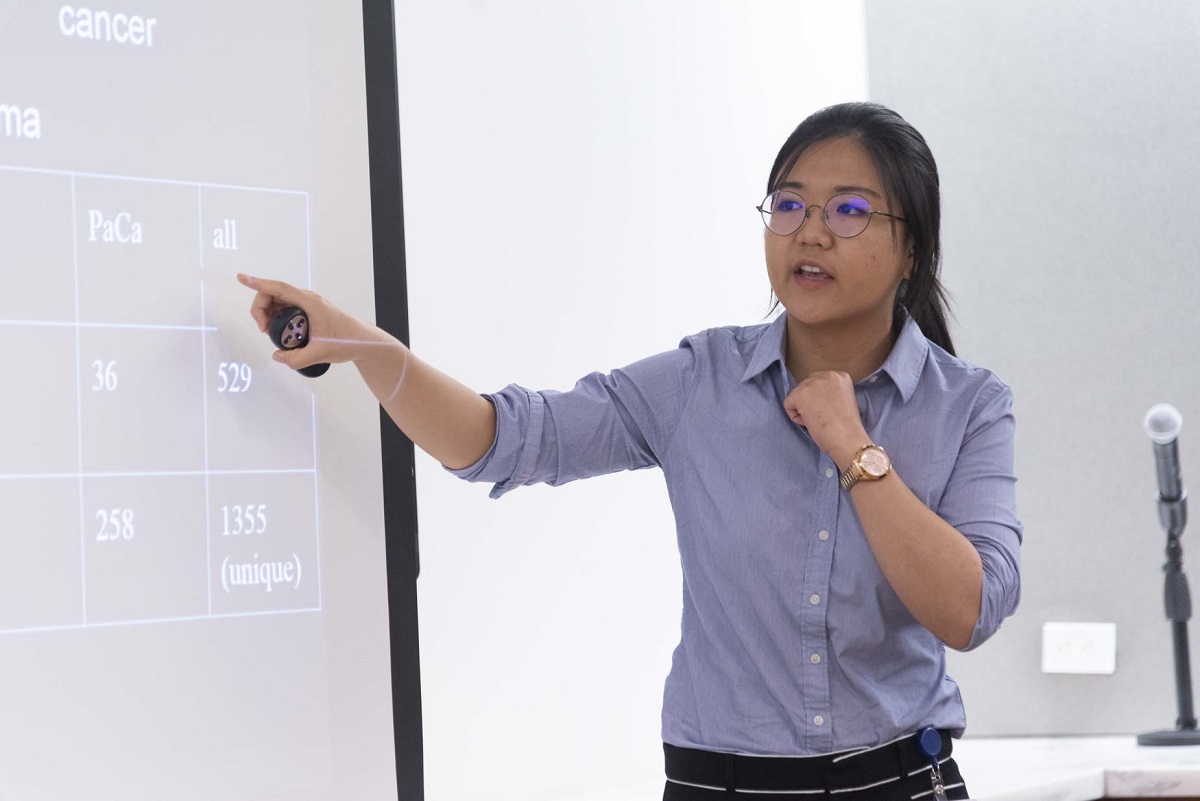
QSURE Application are now open! Click here to apply
Applications will close Monday, January 19th at (Eastern time). QSURE 2026 will run from Monday, June 1st to Friday, August 7th.
Questions? Please send an email to [email protected]
Watch a video from Chase and Breanna, previous QSURE interns.
Program Overview

The QSURE internship program is designed for motivated undergraduate students with a passion for quantitative science. Each student will be paired with an expert mentor to work on an individual, data-driven research project that aims to answer pressing questions in cancer. The program will provide hands-on skills in biostatistics, epidemiology, health outcomes, and/or computational oncology. The QSURE program is supported by the National Cancer Institute (R25 CA214255) and the MSK Society.
Important Information

- Applications for QSURE 2026 will open Monday October 27th and will close 9am on Monday, January 19th.
- Applications submitted by January 4th will be reviewed first. Applications submitted after that date will be reviewed starting January 19th. Please note: applications are considered complete and will only be reviewed when we receive all accompanying letters.
- QSURE 2026 will run from Monday, June 1st to Friday, August 7th
- QSURE will provide a stipend of $6,375 for the 10-week internship
- Housing is available for accepted students
- Applicants must be authorized to work in the US

Program Goal

QSURE interns will receive training in scientific as well as career development skills, including:
- Hands-on research experience carried out under the guidance of a faculty mentor
- Quantitative skills and familiarity with methods used in cancer and population health research
- Exposure to a wide application of data through internal and external speakers
- Education in the responsible conduct of research
- Training in oral and written scientific presentation
- Resources for career development
- Understanding of options for graduate study and careers
- A supportive cohort of like-minded peers

Program Outcomes
- 100% of QSURE alumni said they would recommend the program to future students
- 71% of alumni entered graduate school (masters or PhD) in a related field
- Our students produce publishable work on important research areas (please see Research Areas and Past Projects)
Eligible applicants must be:
- Enrolled as a full-time undergrad student with an expected graduation after December 2026
- Authorized to work in the US
- In good academic standing
- Committed to professional conduct and integrity
Competitive applicants will have:
- A keen interest in cancer and population health
- At least one semester of college statistics (AP statistics courses do not count)
- Demonstrated experience or aptitude for independent and collaborative data analysis and/or quantitative research
- Proficiency in a statistical programming language (e.g., R, SAS, STATA, Python)
- A strong academic record
- Excellent oral and written communication skills
- Demonstrated desire to pursue graduate education or a career in quantitative health sciences
- Resume
- Statement of interest (~ 500 words), briefly summarizing your motivation for participating in QSURE and any quantitative experience you have. See further instructions in the application.
- Letter of good academic standing from dean, advisor, registrar or equivalent on letterhead. Letter must confirm that the student is currently enrolled, in good academic standing, and include the student’s anticipated graduation date.
- Letter from recommendation someone who knows your work and goals. For example: professor, supervisor, collaborator, etc.
- Transcripts will be requested after acceptance to the program
The QSURE Internship is sponsored by Memorial Sloan Kettering’s Department of Epidemiology and Biostatistics, located in midtown Manhattan. The Department’s offices at 633 3rd Avenue are in easy walking distance of several New York City subway lines and the Metro North Railroad at Grand Central Terminal. Penn Station (Long Island Railroad, New Jersey Transit) and the Port Authority Bus Terminal are easily accessible via mass transit. MSK operates regular shuttle buses between midtown and MSK’s main campus on the Upper East Side, where QSURE interns will have access to the MSK Library and to relevant lectures, seminars, and other educational activities.
Individual research projects vary from year to year, but all apply quantitative approaches in biostatistics, epidemiology, health outcomes, or computational oncology.
Common research areas and examples of past projects that fall under these areas are listed below:
-
Biostatistics (Statistical methodology, prediction modeling, clinical trials)
- Classification in Lymphomas using Random Forest Algorithm
- Validating Self-Efficacy in a Study of Ethnically Diverse Breast Cancer Patients using Factor Analysis
- Joint Model for Longitudinal and Survival Data: A study of Primary Biliary Cirrhosis
- Predicting Liver Metastases in Colorectal Cancer Patients Using Radiomics Data
-
Epidemiology (Cancer etiology, risk, and prevention)
- Understanding Differences in Prescription Drug Use Between Mexican Americans and Non-Hispanic White Americans: Results from the NHANES Study
- Association Between Fish Oil Supplements and Per- and Polyfluoroalkyl Substances (PFAS)
- Associations Between Insulin Resistance-related Traits and Breast Cancer Risk by Molecular Subtype: a Mendelian Randomization Study
- How Was the Great Recession Associated with Delays in Medical Care and Prescription Drug Fills?
-
Health Outcomes (Health services delivery)
- Financial Relationships Between the Drug Industry and US Cancer Center
- Increasing Financial Payments from Industry to Medical Oncologists in the United States, 2014-2017
- Are Publicly Reported Hospital Measures Associated with Outcomes?
- Financial Conflicts with Industry Among National Comprehensive Cancer Network (NCCN) Guidelines Panelists
-
Computational oncology (Molecular insights into tumor biology)
- Identifying Splice Events That Contribute to Tumor Initialization and Progression Using Recurrence
- Benchmarking Allele-Specific Copy Number Methods on Single Cell Whole Genome Sequencing Data
- Characterization of Treatment-Associated Genomic Changes in Rectal Cancer Patients Treated with Neoadjuvant Therapy
- Integrative Analysis of Clinical and Genomic Factors Underlying Racial Disparities in Colorectal Cancer Outcomes
Email: [email protected]
Phone: 646-888-8156
MSK is an equal opportunity and affirmative action employer committed to diversity and inclusion in all aspects of recruiting and employment. All qualified individuals are encouraged to apply and will receive consideration without regard to race, color, gender, gender identity or expression, sexual orientation, national origin, age, religion, creed, disability, veteran status or any other factor which cannot lawfully be used as a basis for an employment decision.